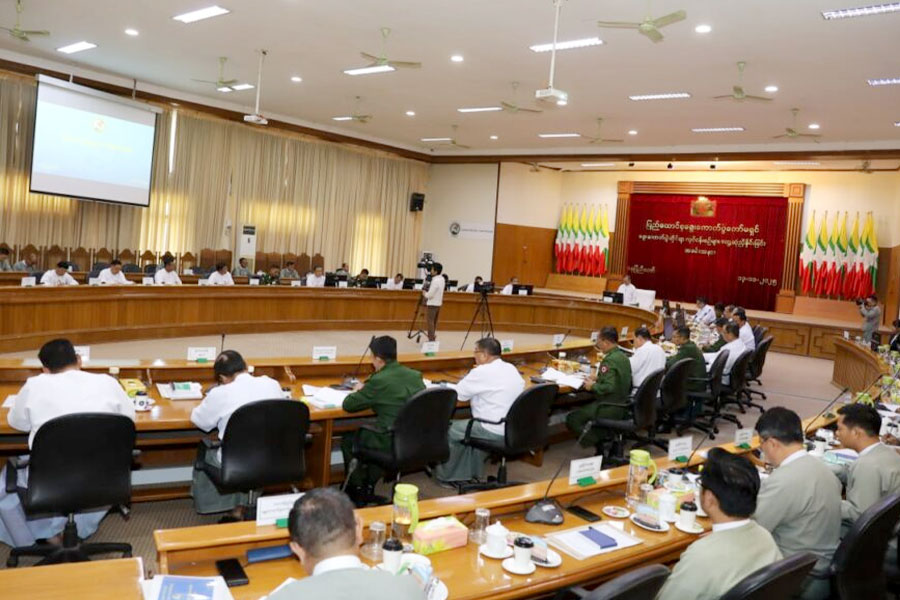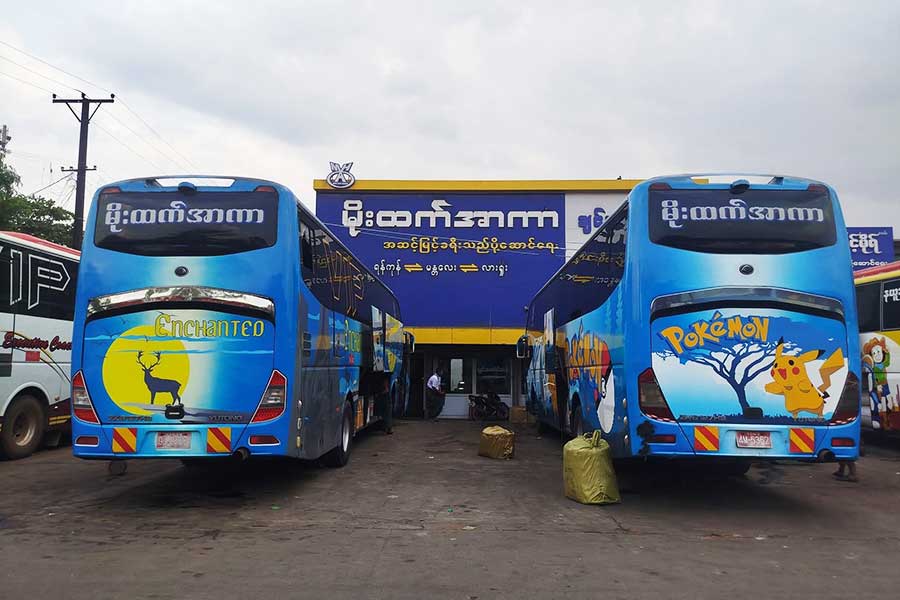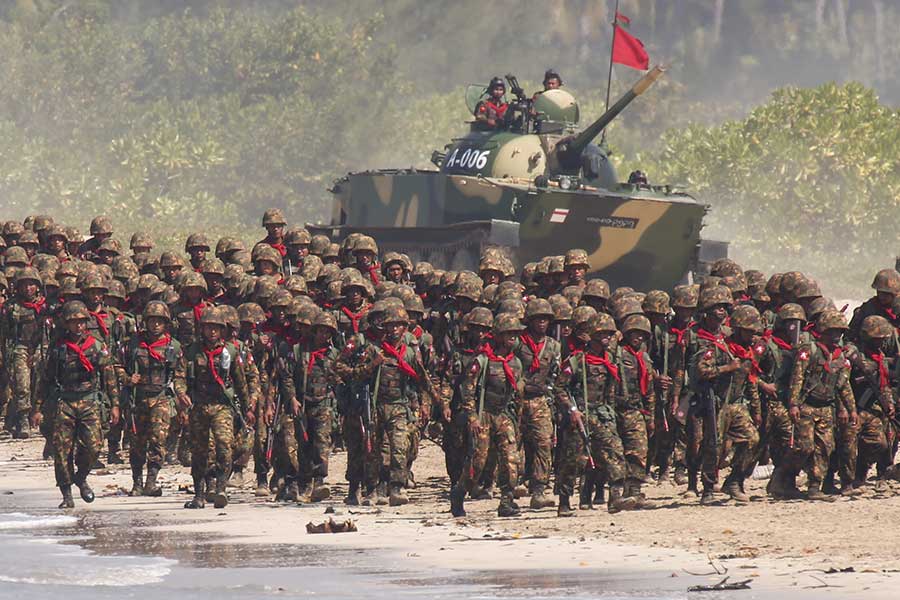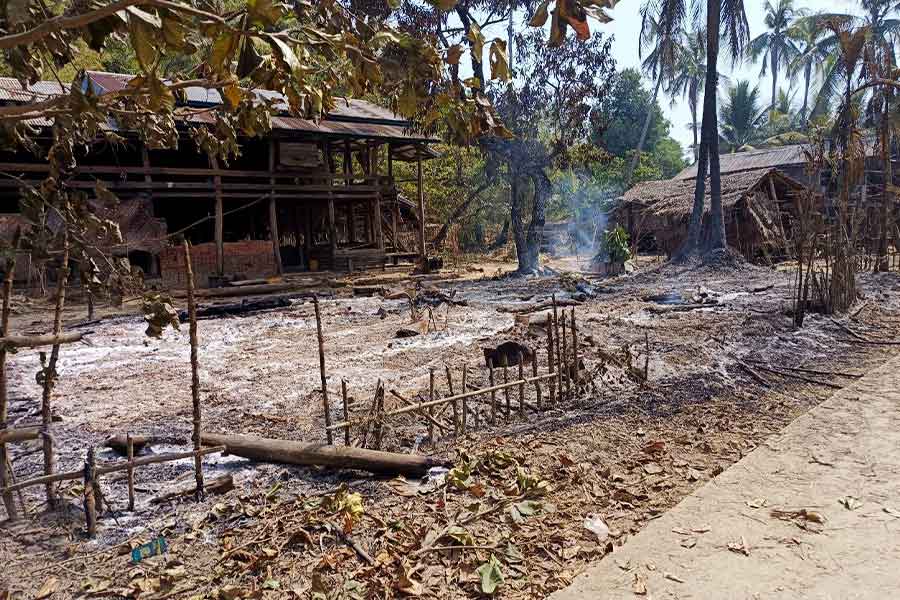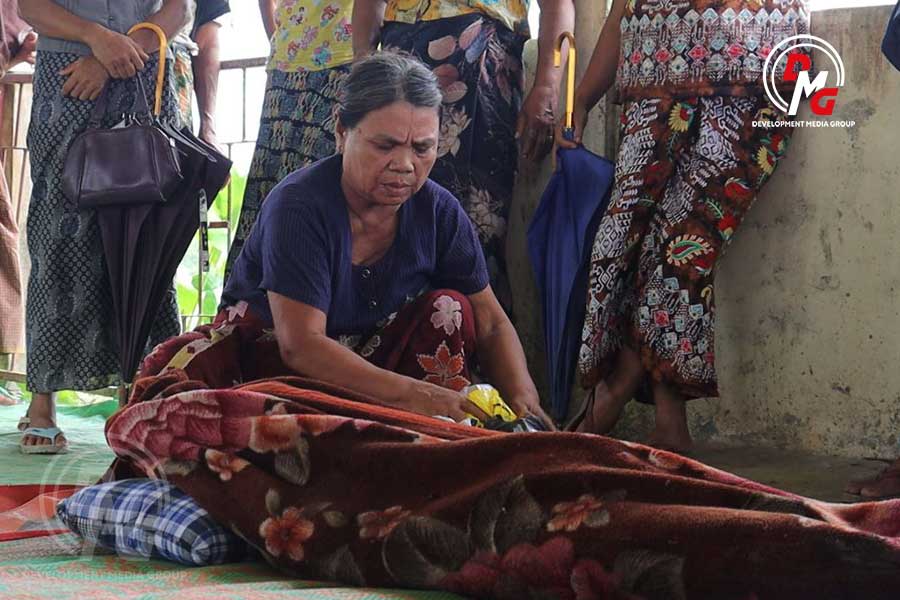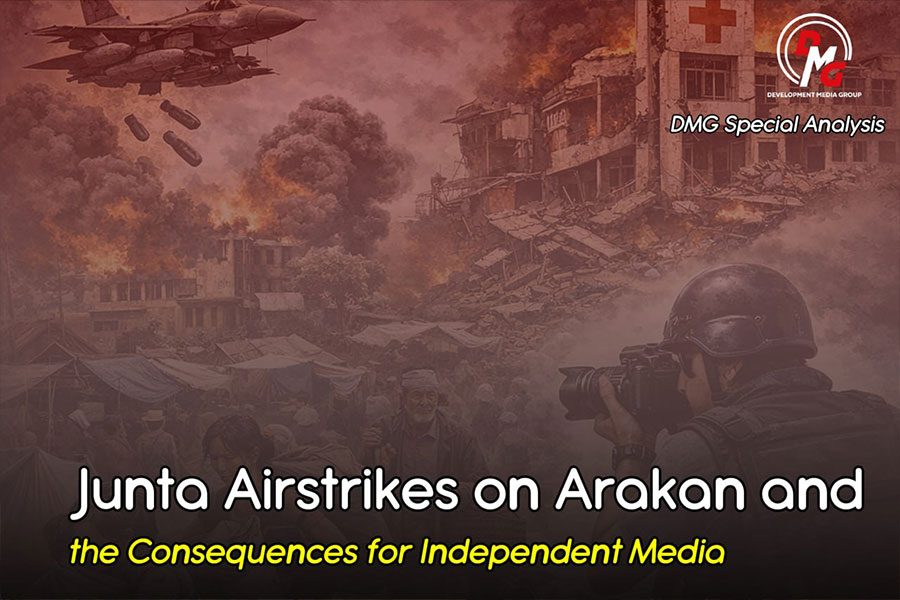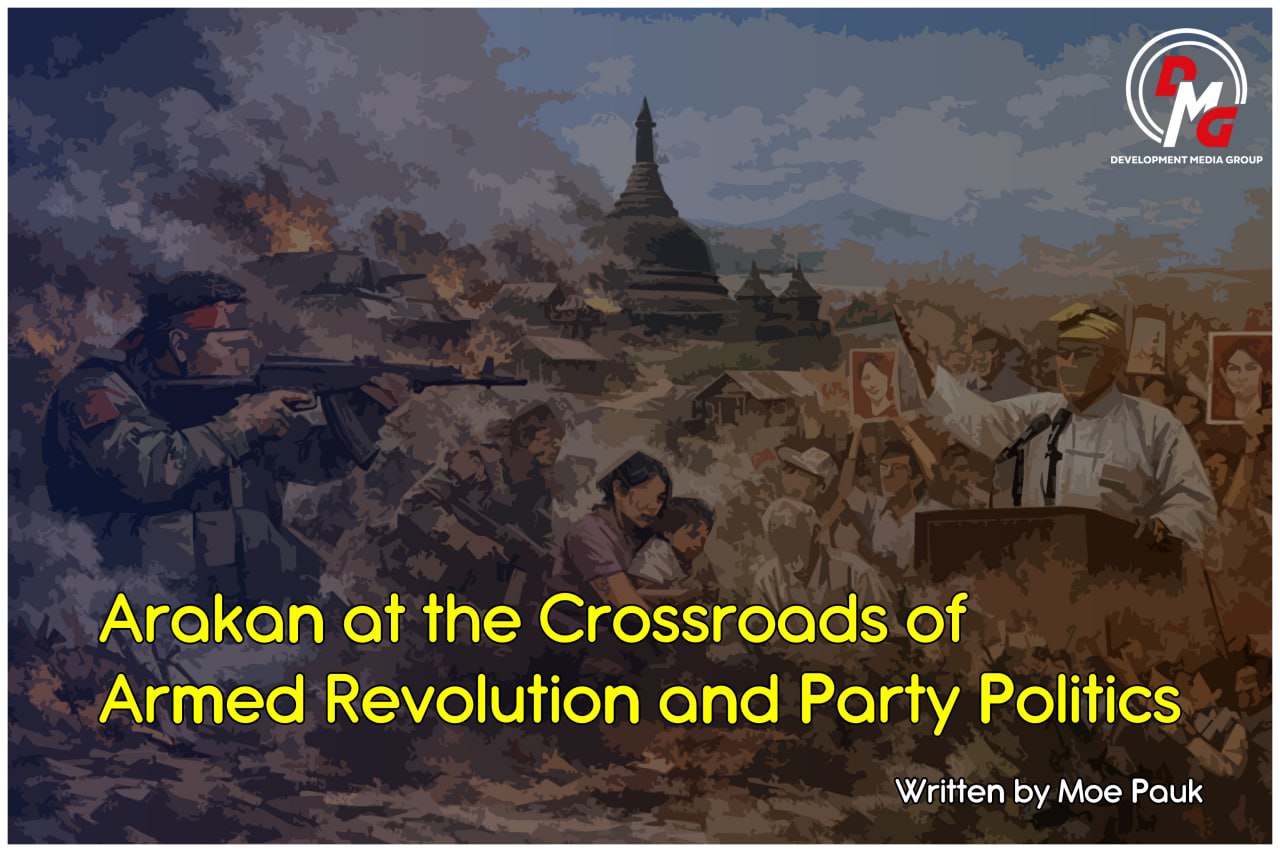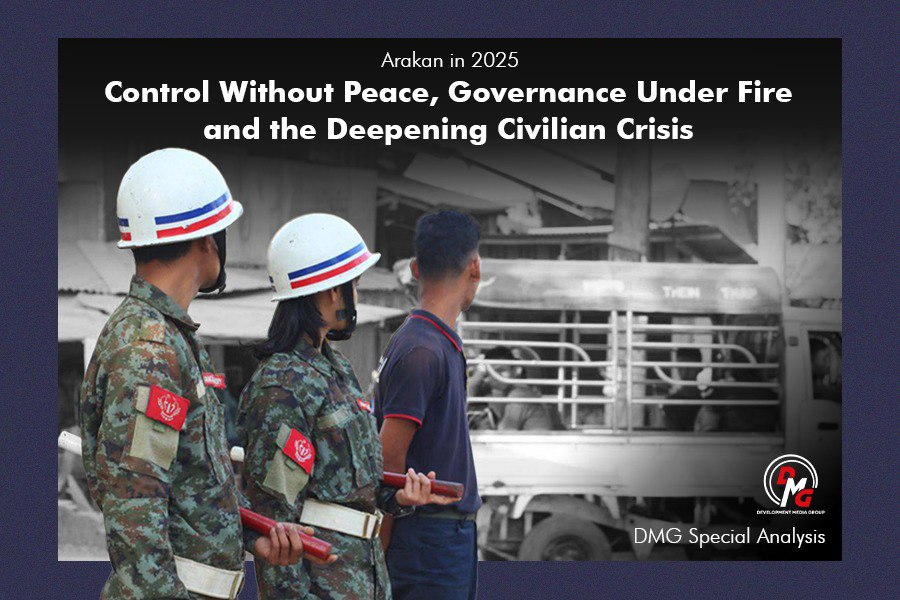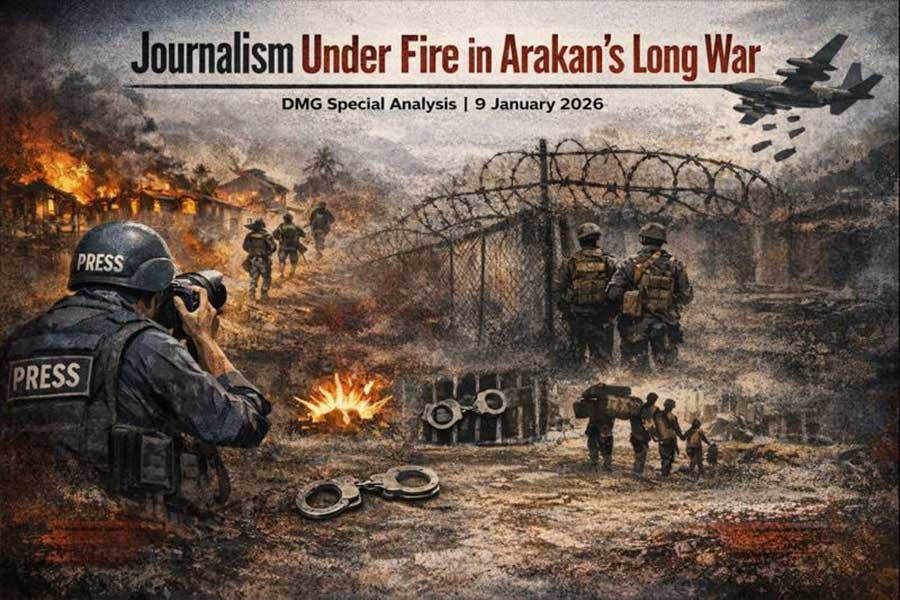- UEC announces 1,025 MPs elected in 2025 general elections
- Junta tightens travel restrictions on Arakanese people in mainland Myanmar
- Regime steps up offensive toward Arakan State via Ayeyarwady coastal route
- Elderly IDP killed, two others injured in junta airstrike on Kyaukphyu village
- AAPP urges urgent international action as junta crimes against humanity escalate
Peace in Arakan After Election Day 2020
The general election is just over a week away. November 8 is about choosing representatives for the respective Hluttaws through the votes of the people. In other words, it is about what the government will look like beyond 2020.
24 Oct 2020
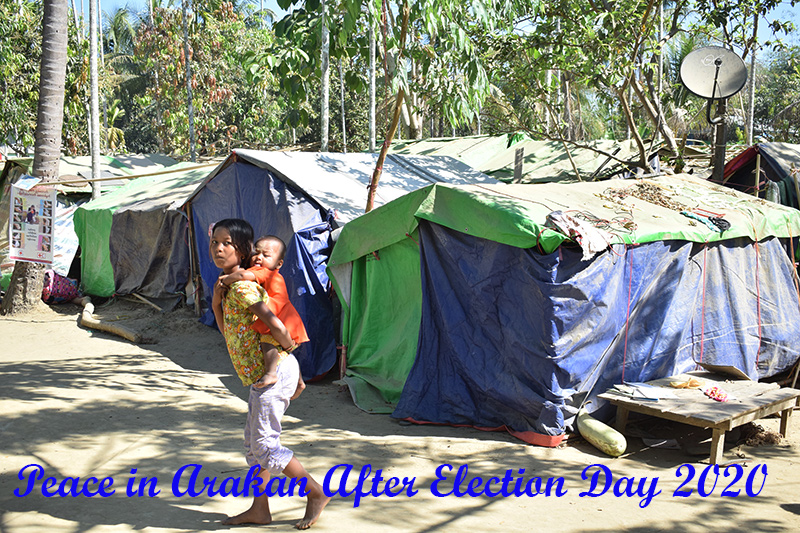
By Aung Htein
The general election is just over a week away. November 8 is about choosing representatives for the respective Hluttaws through the votes of the people. In other words, it is about what the government will look like beyond 2020.
Under Myanmar’s electoral system, the party that wins the majority of votes will get the right to form a government and lead the nation in the realms of socioeconomics and peace-building. But the armed conflict between the Tatmadaw and the Arakan Army has not receded and fighting in western Myanmar continues to take place almost every day.
On October 16, the Union Election Commission (UEC) announced the cancellation of voting in nine entire Arakan State townships and parts of four other townships in the state. While the nixing of voting in relatively peaceful places has raised eyebrows and prompted criticism, the scope of the cancellations has also spotlighted the extent of the armed conflict in Arakan and Chin states.
In its October 16 announcement, the UEC said elections would not be held in the entirety of nine Arakan State townships, as well as 15 wards and 137 village-tracts across four other townships in the state.
In some cases, IDPs have been staying in small rooms measuring 4x4 feet, facing difficulties in health, education and livelihoods. U Shwe Kyaw Win from Sein Nyin Wa village in Paletwa Township, who has been staying at Oakthalin Monastery IDP camp in Sittwe, said the camp had provisions from donors but that it was not sufficient.
“We have no jobs so we have no money, though we like to buy a meal from outside,” he said.
The IDPs want the Tatmadaw and the AA to come to a ceasefire and find a peace solution as only when the fighting stops can they return home.
The government and four Northern Alliance groups had met four times in order to sign an initial ceasefire. The fourth meeting took place on September 17, 2019, in Kyaingtong (Shan State). But the Tatmadaw and the armed groups’ meeting ended with no good result and the tense situation remains unchanged.
The main stumbling block between the Tatmadaw and four Northern Alliance groups to make a bilateral ceasefire agreement has been the deployment of troops. The discussions have stopped, as they could not agree on the venue and the time to meet amid travel restrictions due to COVID-19 pandemic.
Over the course of extensive delays, the fighting between Tatmadaw and the AA has intensified in Arakan State.
The government’s declaration on March 23, 2020, of the AA and United League of Arakan as terrorist groups and unlawful associations, has set back the peace process, critics say.
Since August 16, the COVID-19 infections have intensified again in Arakan State, raising concerns statewide.
And yet, it has been nearly two years since the fighting between the Tatmadaw and the AA began in December 2018. As a consequence, about 300 civilians have died and more than 600 others have been injured.
Political analyst U Maung Maung Soe said it was necessary for the Tatmadaw and the AA to sign an initial ceasefire agreement in order to go on with the peace process. He also said the Tatmadaw would indicate whether it would recognize the existence of the AA or not, an important consideration in any potential bilateral agreement.
“If the Tatmadaw makes a ceasefire offer in which it will not recognise AA’s existence in both Arakan and Kachin states, and instead insists to lay down arms, the AA would not accept. Then, the fighting will not end,” he said.
The 10 Nationwide Ceasefire Agreement signatories on October 15 of this year, at the fifth anniversary of signing the NCA, urged the two warring groups in Arakan State to find a solution through political means to alleviate tensions in the area.
However, there have been questions on the government’s peace process for not getting any result after almost five years of talks.
Even though the majority of people in Arakan will not get voting rights in the election, the new government has to cope with the current situation for the Arakan State’s peace, political analysts said.
The new government beyond 2020 should have laid down firm policies on military conflicts in ethnic areas including the Arakan State, said U Pe Than, who is running for the Pyithu Hluttaw seat representing Arakan State’s Myebon Township.
“It is necessary for the new government not to follow the model of not doing anything once the power comes into their hands but to carry out the really important issues by laying down policies,” he said.
Hluttaw representatives said people had been demanding peace and both the government and Tatmadaw were responsible to do that as well, including the path to ceasefire could be started if they invite ethnic armed organisations to peace talks.
The IDPs have been expecting to be able to live peacefully after 2020 when the new government takes office because they simply do not like to be away from their homes any more.
“We want a government which will make us peaceful. We don’t want someone who will continue to make us flee chaotically,” said Daw Ma San Yi from Yay Myet village in Rathedaung Township, who is staying now at Aloedaw Pyae IDP camp in Sittwe.




